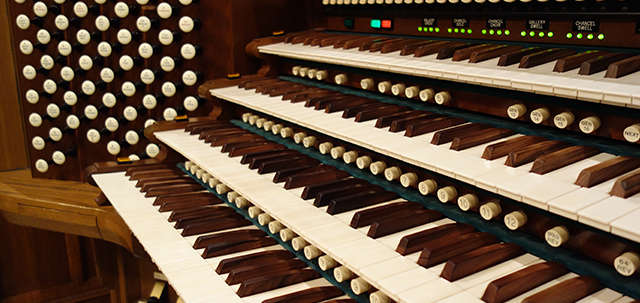Perhaps you have heard me say some of this already in Wednesday classes. But I love to repeat everything on my favorite topic!
Music has the indisputable ability to change the mood and atmosphere of any occasion. Imagine your favorite horror movie without those shrieking violins! Music’s transcendent ability to express the meaning of text goes way beyond the possibilities of words alone. Two composers can bring out completely different flavors in the same canticle text. When an organist changes the tune to a well-known hymn, this can provoke ire from those who cherish the old tune, while drawing others to consider theology they had previously overlooked.
But let’s look beyond the surface for a minute. When we sing, we are not just praying together. We are breathing together. We are thinking together. We are united in deeper commonality.
We are familiar with the concept that prayer shapes the way we think. When we sing those words, we often remember them faster or longer. I love to tell people how the three-year-olds in my previous parish knew the Lord’s Prayer and the Nicene Creed by heart because we sang them every week. I know I was much older when I knew those words with absolute fluency. I still use a script when saying them on camera, just in case.
Hymns are also a great vehicle for teaching. Cecil Frances Alexander wrote hymns to teach her own children the doctrine of the Church. “Once in royal David’s city” tells the Christmas tale, and “He is risen!” shouts “with joyful voice” of Easter. I still look forward to those gems every year.
When I consult with parishes seeking a new organ, I choose a line from one of the parish’s favorite hymns to use as a slogan. That hymn is sung at every occasion even vaguely related to the project, and quickly becomes the parish’s theme song. It forms communal identity.
Our hymnal is so much more than a music book. It is one of our richest sources of theology. It distills poetry and paraphrases of Scripture from centuries of liturgy and story. Which lines have stuck in your head and changed your thinking?
Dr. Stuart Forster
Associate for Music and Liturgy, Organist and Choirmaster

